Company Law: Report on the Maintenance of Capital Doctrine Principles
VerifiedAdded on 2020/02/05
|5
|733
|28
Report
AI Summary
This report provides a comprehensive overview of the maintenance of capital doctrine within the context of company law. It begins by defining the doctrine as a framework established through common law precedents, outlining how judges use it to assess legal cases and how it becomes a de facto decision-making method. The report delves into the history of the doctrine, explaining its evolution and significance. It highlights the benefits of the doctrine, such as its role in ensuring predictability, consistency, and fairness within the legal system, while also addressing its time-saving aspects. The report also explores the exceptions to the doctrine, particularly when decisions from higher courts are inconsistent or deemed legally incorrect. The report concludes by referencing several academic sources to support the analysis of the maintenance of capital doctrine.
1 out of 5
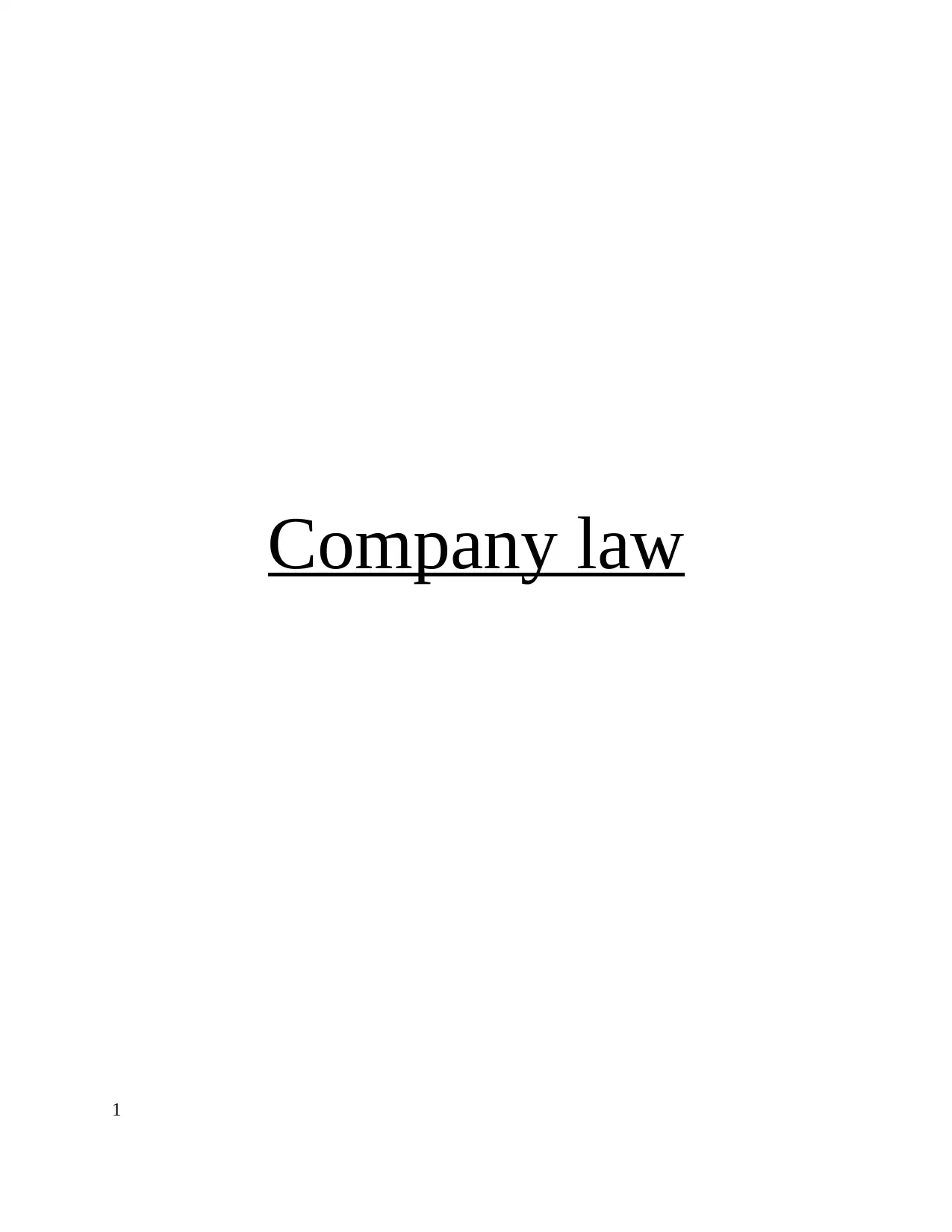
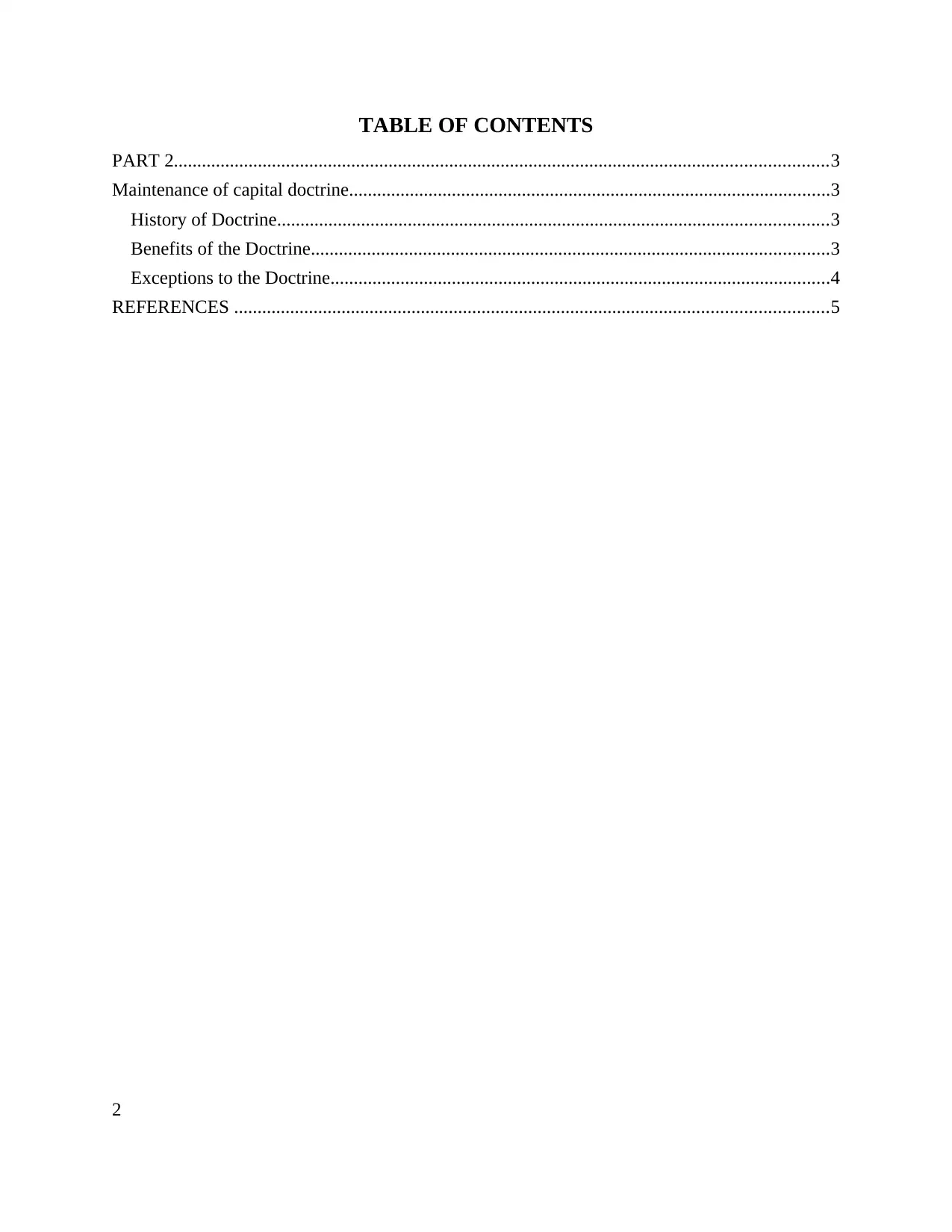
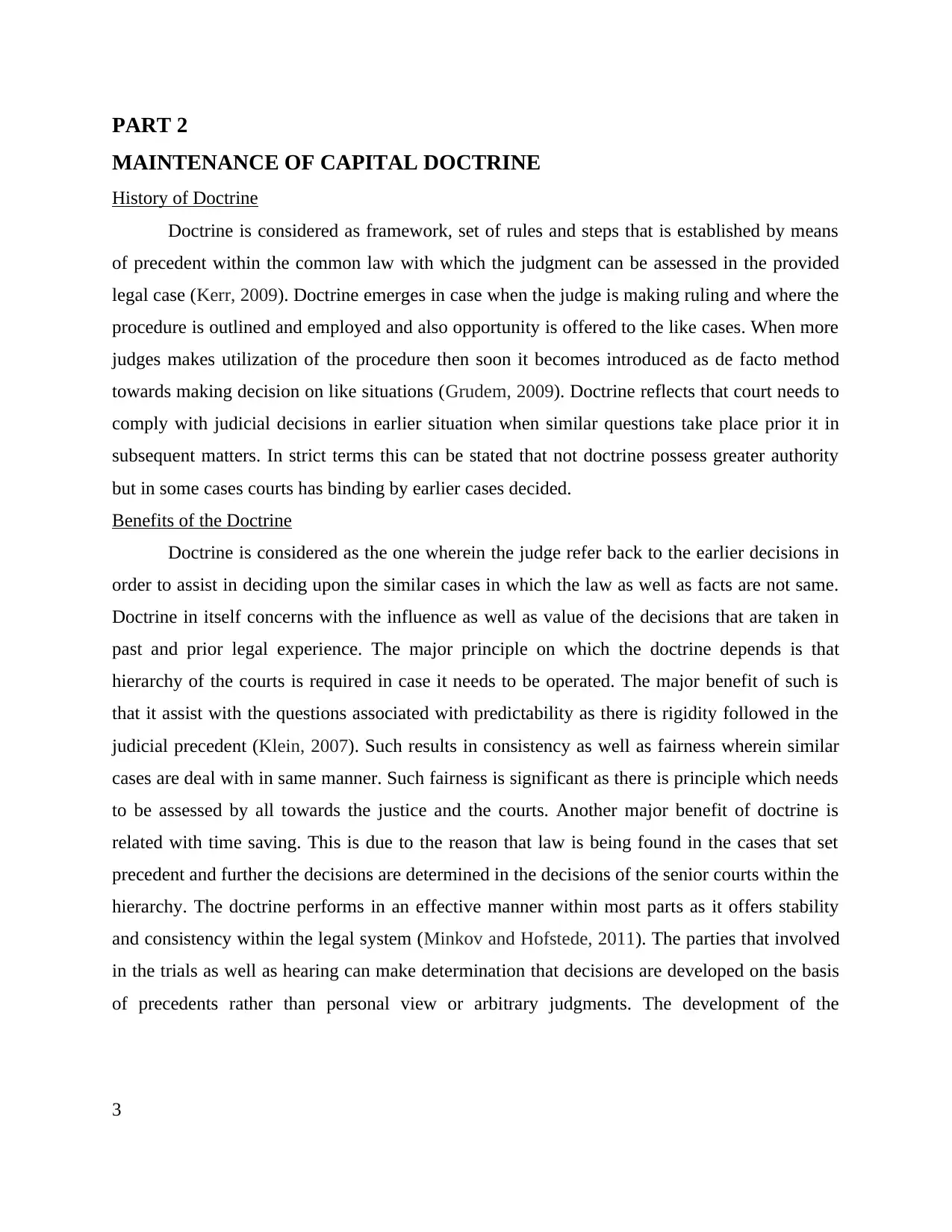

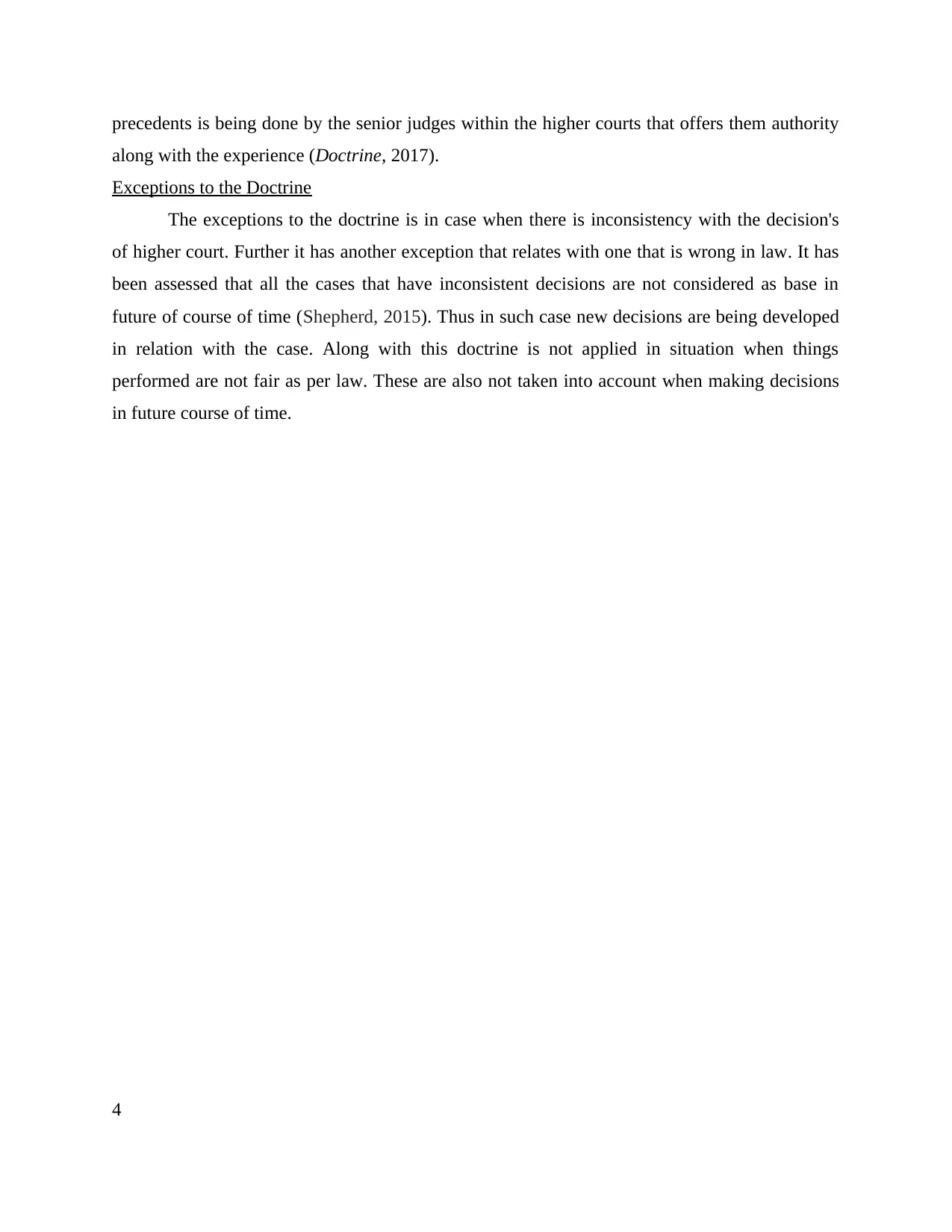
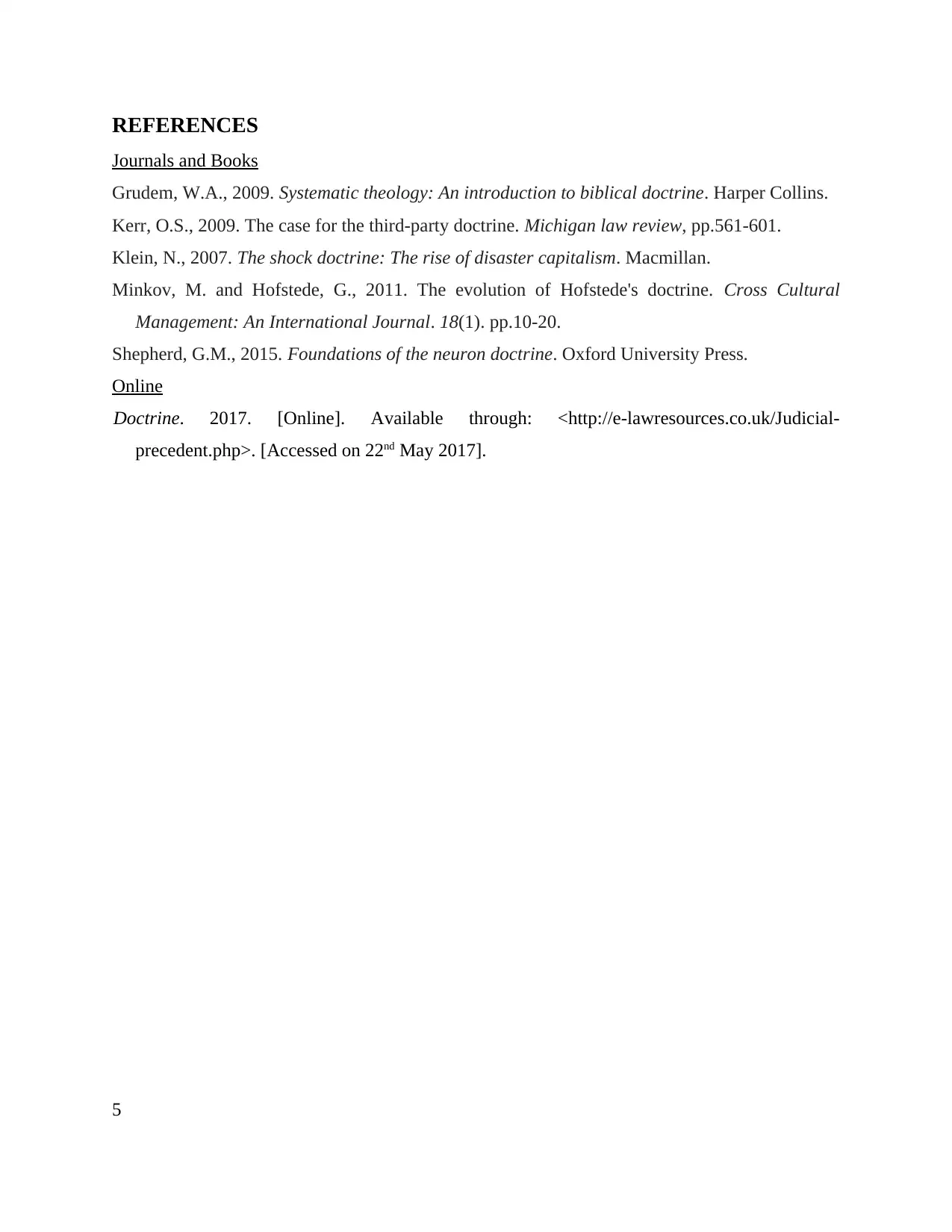






![[object Object]](/_next/static/media/star-bottom.7253800d.svg)